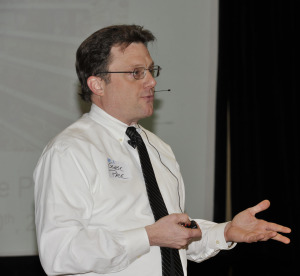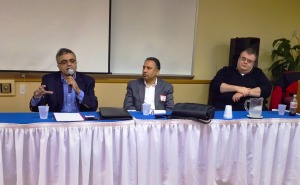|
|
Many business owners struggle with whether they should design a responsive website that works across devices or focus exclusively on building native mobile apps. Choosing between a responsive website or a native mobile app is more of a business call than that of technical capabilities. Since mobile app development may require a large investment, a responsive web design may be a terrific solution.
|
Why Have a Mobile Presence
Mobile access gives your business the opportunity to interact with customers in real time. In addition, it allows you to expand your customer base beyond traditional website users by providing on-demand access to valuable information wherever the user is located. An effective mobile presence can produce an engaged customer, which often translates into a paying customer.
A Challenge with Native Mobile Apps
Native mobile apps are software programs that are developed specifically for smaller, handheld devices, such as tablet computers or mobile phones. Properly developed, they present a user experience optimized for each viewing device. The challenge you may experience in choosing to build a mobile app is that it can become an expensive proposition for when you want to reach mobile users. That’s because mobile app development is platform specific, and the apps must be recreated for each desired platform.
As of February 2015*, the most common mobile platforms in the US are Android (46.9%), iOS (42.6%), Windows Phone (2.7%) and all others (7.8%). In order to reach the maximum number of mobile users, you must plan to individually build each mobile app for multiple platforms. If, for example, you chose to only build one instance of a mobile app on the Android platform, you are missing 53.1% of the mobile market users.
What is Responsive Web Design?
Responsive web design is building a website suitable to work on a browser on most every device and every screen size, no matter how large or small, mobile or desktop. Responsive web design is focused around crafting websites to provide an intuitive and gratifying experience for everyone. Websites created with a responsive design adapt the layout to the viewing environment.
Unfortunately, most websites are not optimized for mobile and other devices with smaller screens. They are designed for large screen displays such desktop monitors. Mobile devices are often constrained by display size and require a different approach to how content is laid out on screen.
There is a multitude of different screen sizes across desktops, laptops, tablets, 2-in-1’s, phones, game consoles, TVs, and wearables. The use of mobile devices to surf the web is growing at an almost astronomical pace. Since the screen sizes are different and always changing, it’s important that your website can adapt to any screen size, today or in the future.
Click on the video image to see how a Responsive Web Design responds to size changes.
The User Experience
In order for a user to have a mobile app, they usually must download it and install it on their device one time. Typically, the installation includes placing an icon on the device’s interface used to start the mobile app.
In order to access a responsively designed website, the user must start the web browser already installed on their device, and then enter the website’s URL (web address). It is easier and faster to start a mobile app by clicking the app’s icon. In addition, the information presented will be formatted specifically for the platform. However, once the user accesses the website via the browser, they can save the URL as a “favorite” so as not to have to reenter it each time they want to access the website.
If You Want an Effective Mobile Presence
If your current website is not responsive, you will need to upgrade or replace your website to effectively accommodate mobile devices. Or, you will need to build native mobile apps for one or more mobile platforms. In general, the cost to build a mobile app for one or more platforms will far exceed the cost of upgrading your website to be of a responsive design.
Deciding between a having responsive website or mobile app is a business decision where you will need to consider several factors (e.g. user experience, industry norms, your competition, etc.) in addition to the cost. When cost is a large factor in your decision, consider a responsive website design as a cost effective means to gain a strong mobile presence.
*Netmarketshare
I encourage you to leave a comment by clicking on “…comments” below…
David Schuchman
from BCNJ Member Blog Feed http://dlvr.it/8zlGgQ
via IFTTT


